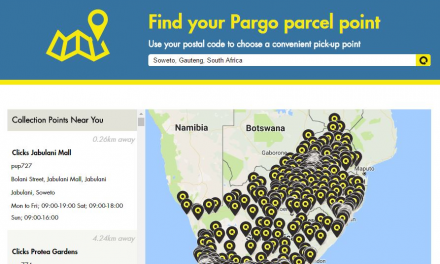
Botswana Post includes ICT developments as part of its offering
ICT was supposed to spell doom for the postal sector but BotswanaPost has managed to adapt to an altered business landscape.
“At the close of the year, work was at an advanced stage on an electronic money transfer product that would not only expedite and improve on the security of transactions but also offer customers value added services such as SMS notifications,” says BotswanaPost’s board chairman, Martin Makgatlhe, in the just-released 2007/08 annual report.
In partnership with the government, BotswanaPost has also upgraded 24 post offices to become public information centers or Kitsong Centers as they are more commonly known.
The centers were set up after a study undertaken by the Botswana Technology Centre established the following: that rural communities needed ICT for agricultural and related services as well as for long-distance education and to access external markets to sell their produce; women in particular needed to access ICT services from their homes while taking care of old-age family members and children; and, communities wanted to access information on government policies on business development initiatives and financial resources.
Rural communities have also benefited from what BotswanaPost calls “a newspaper distribution solution” that has enabled The Botswana Daily News to reach most destinations in the country on the day of publication. In her own statement, Ruth Mphathi, who was acting director general at the time the report was put together, says that this development “also allows for extensive distribution of other national publications across the country.”
Makgatlhe says Botswana continues to deliver on its Universal Service Obligations at standards that are quite high compared to the rest of the developing world.
“For the year under the postal density ratio was 15,667 inhabitants per fully fledged post office, compared to 68,100 inhabitants per post office for the African continent and 10,100 inhabitants per post office for the world. This can be attributed to our continued efforts to bring postal services closer to the people,” he says.
However, the 2007/08 financial year was not an entirely good one for BotswanaPost. Compared to the previous year, net profit dropped by 36% while overall expenditure increased by 11% on account of staff salaries and mail conveyance costs. The latter was a result of high fuel prices which was bad news for a postal operator with 119 post offices and 70 postal agencies countrywide.
Mphathi attributes the drop in revenue growth to various other adverse factors. Boxes and mail income reaching only 75% of the budget largely due to the migration of customers from private bags to post boxes in response to the 2006 tariff increases.
“Government mail reached 72% of budget due to the increasing use of own transport by government departments to deliver mail, particularly where bulk deliveries are involved. The international mail standards, particularly on parcel mail are challenging BotswanaPost because of the manual systems. Penalties are charged against terminal dues income for all parcels whose delivery cannot be confirmed electronically by the international mail partners. This has contributed to the erosion of revenues. The Hybrid mail product also [got] off to a slow start,” Mphathi says.
Botswana Couriers, a wholly-BotswanaPost-owned subsidiary, recorded a decline of 49% in profit and its performance has become a source of “great concern.”
Some capital projects had to be put on hold due to shortage of funds. The worst affected were the International Office of Exchange, Integrated Business System and the modernisation of 32 post offices across the country.
The other major challenge that BotswanaPost faces is that it operates in an unregulated market. In response to that, the ministry of communications, science and technology is in the process of developing a postal sector policy.












